Korea’s ‘Oldboy’ digs deeper than average mystery/thriller
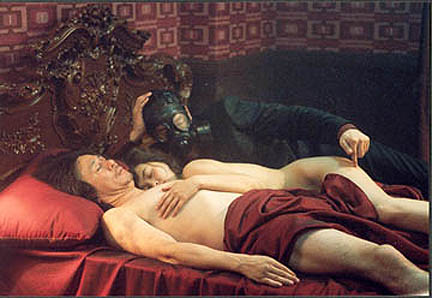
Design for living: An unconventional sort of ménage à trois in "Oldboy."
A man gets violently drunk and is chained to the wall in a police station. His friend comes and bails him out. While the friend is making a telephone call, the man disappears from an empty city street in the middle of the night. The man regains consciousness in what looks like a shabby hotel room. A bed, a desk, a TV, a bathroom cubicle. There is a steel door with a slot near the floor for his food tray. Occasionally a little tune plays, the room fills with gas, and when he regains consciousness the room has been cleaned, his clothes have been changed, and he has received a haircut.
This routine continues for 15 years. He is never told who has imprisoned him, or why. He watches TV until it becomes his world. He fills one journal after another with his writings. He pounds the wall until his fists grow bloody, and then hardened. He screams. He learns from TV that his blood and fingerprints were found at the scene of his wife’s murder. That their daughter has been adopted in Sweden. That if he were to escape, he would be a wanted man.
“Oldboy,” by the Korean director Park Chanwook , watches him objectively, asking no sympathy, standing outside his plight. When, later, he does talk with the man who has imprisoned him, the man says: “I’m sort of a scholar, and what I study is you.”
In its sexuality and violence, this is the kind of movie that can no longer easily be made in the United States; the standards of a puritanical minority, imposed on broadcasting and threatened even for cable, make studios unwilling to produce films that might face uncertain distribution. But content does not make a movie good or bad — it is merely what it is about. “Oldboy” is a powerful film not because of what it depicts, but because of the depths of the human heart which it strips bare.
The man, named Oh Dae-su ( Choi Min-Sik ), is a wretch when we first meet him, a drunk who has missed his little daughter’s birthday and now sits forlornly in the police station, ridiculously wearing the angel’s wings he bought her as a present. He is not a bad man, but alcohol has rendered him useless.
When he suddenly finds himself freed from his bizarre captivity 15 years later, he is a different person, focused on revenge, ridiculously responsive to kindness. Wandering into a restaurant, he meets a young woman who, he knows from the TV, is Korea’s “Chef of the Year.” This is Mido ( Gang Hye-Jung ). Sensing that he has suffered, feeling an instinctive sympathy, she takes him home with her, hears his story, cares for him, comes to love him. Meanwhile, he sets out on a methodical search to find the secret of his captivity. He was fed pot stickers, day after day, until their taste is burned into his memory, and he travels the city’s restaurants until he finds the one that supplied his meals. That is the key to tracking down his captors.
It is also, really, the beginning of the movie, the point at which it stops being a mystery and becomes a tragedy in the classical sense. I will not reveal the several secrets that lie ahead for Oh, except to say that they come not as shabby plot devices, but as one turn after another of the screws of mental and physical anguish and poetic justice. I can mention a virtuoso sequence in which Oh fights with several of his former jailers, his rage so great that he is scarcely slowed by the knife sticking in his back. This is a man consumed by the need for revenge, who eventually discovers he was imprisoned by another man whose need was no less consuming, and infinitely more diabolical.
I am not an expert on the Korean cinema, which is considered in critical circles as one of the most creative in the world (“Oldboy” won the Grand Jury Prize at Cannes 2004). I can say that of the Korean films I’ve seen, only one (“The YMCA Baseball Club”) did not contain extraordinary sadomasochism. “Oldboy” contains a tooth-pulling scene that makes Laurence Olivier’s Nazi dentist in “ Marathon Man ” look like a healer. And there is a scene during which an octopus is definitely harmed during the making of the movie.
These scenes do not play for shock value, but are part of the whole. Oh has been locked up for 15 years without once seeing another living person. For him the close presence of anyone is like a blow to all of his senses. When he says in a restaurant, “I want to eat something that is alive,” we understand (a) that living seafood is indeed consumed as a delicacy in Asia, and (b) he wants to eat the life, not the food, because he has been buried in death for 15 years.
Why would Mido, young, pretty and talented, take this wretched man into her life? Perhaps because he is so manifestly helpless. Perhaps because she believes his story, and even the reason why he cannot reclaim his real name or identity. Perhaps because in 15 years he has been transformed into a man she senses is strong and good, when he was once weak and despicable. From his point of view, love is joined with salvation, acceptance, forgiveness and the possibility of redemption.
All of this is in place during the several scenes of revelation which follow, providing a context and giving them a deeper meaning. Yes, the ending is improbable in its complexity, but it is not impossible, and it is not unmotivated. “Oldboy” ventures to emotional extremes, but not without reason. We are so accustomed to “thrillers” that exist only as machines for creating diversion that it’s a shock to find a movie in which the action, however violent, makes a statement and has a purpose.


Roger Ebert
Roger Ebert was the film critic of the Chicago Sun-Times from 1967 until his death in 2013. In 1975, he won the Pulitzer Prize for distinguished criticism.

- Gang Hye-Jung as Mido
- Chi Dae-Han as No Joo-Hwan
- Lee Seung-Shin as Yoo Hyung-Ja
- Choi Min-Sik as Oh Dae-Su
- Yoo Ji-Tae as Lee Woo-Jin
- Oh Dal-Su as Park Cheol-Woong
- Kim Byoung-Ok as Chief Guard (Mr Han)
- Hwang Jo-Yun
- Lim Joon-Hyung
- Park Chanwook
Based on the story by
- Minegishi Nobuaki
- Tsuchiya Garon
Directed by
Leave a comment, now playing.

Sonic the Hedgehog 3

The Six Triple Eight
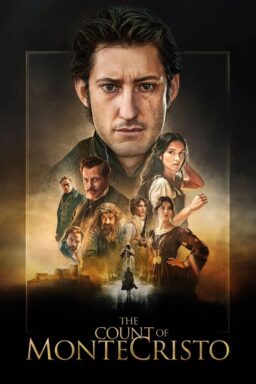
The Count of Monte Cristo

The Room Next Door
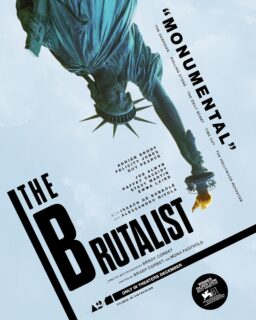
The Brutalist

Mufasa: The Lion King
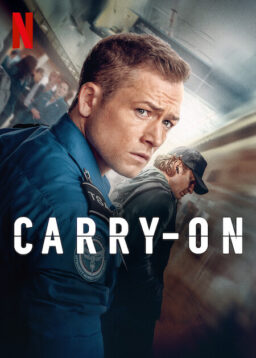
September 5

The Last Showgirl

The Lord of the Rings: The War of the Rohirrim

Dirty Angels
Latest articles.
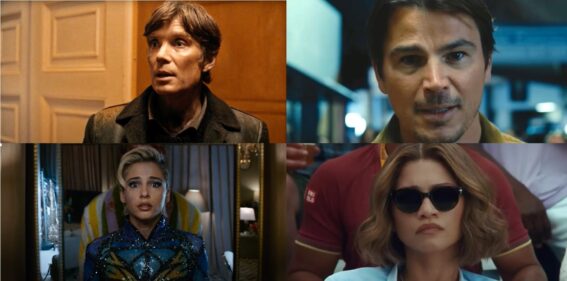
The Great Performances of 2024, Part Two
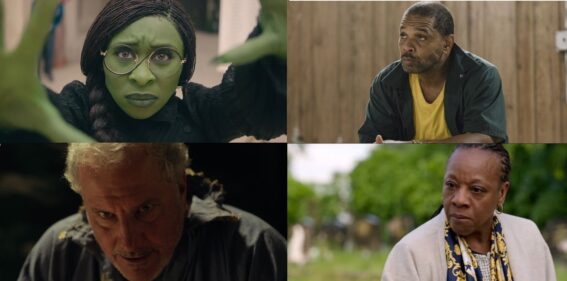
The Great Performances of 2024, Part One
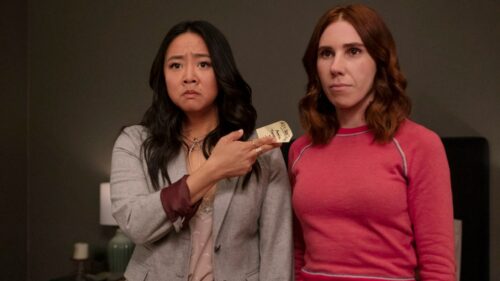
Peacock Turns the Rom-Com Into a Game of Death in the Charming “Laid”
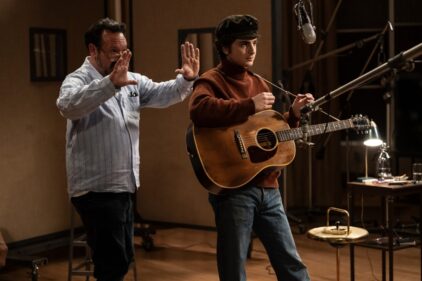
No Box He Won’t Escape From: James Mangold on “A Complete Unknown”
The best movie reviews, in your inbox.
We sent an email to [email protected]
Didn't you get the email?
By joining, you agree to the Terms and Policies and Privacy Policy and to receive email from the Fandango Media Brands .
By continuing, you agree to the Privacy Policy and the Terms and Policies , and to receive email from the Fandango Media Brands .
Log in or sign up for Rotten Tomatoes
Trouble logging in?
By creating an account, you agree to the Privacy Policy and the Terms and Policies , and to receive email from Rotten Tomatoes and to receive email from the Fandango Media Brands .
By creating an account, you agree to the Privacy Policy and the Terms and Policies , and to receive email from Rotten Tomatoes.
Email not verified
Let's keep in touch.

Sign up for the Rotten Tomatoes newsletter to get weekly updates on:
- Upcoming Movies and TV shows
- Rotten Tomatoes Podcast
- Media News + More
By clicking "Sign Me Up," you are agreeing to receive occasional emails and communications from Fandango Media (Fandango, Vudu, and Rotten Tomatoes) and consenting to Fandango's Privacy Policy and Terms and Policies . Please allow 10 business days for your account to reflect your preferences.
OK, got it!
- About Rotten Tomatoes®
- Login/signup
Movies in theaters
- Opening This Week
- Top Box Office
- Coming Soon to Theaters
- Certified Fresh Movies
Movies at Home
- Fandango at Home
- Prime Video
- Most Popular Streaming Movies
- What to Watch New
Certified fresh picks
- 87% Sonic the Hedgehog 3 Link to Sonic the Hedgehog 3
- 93% The Brutalist Link to The Brutalist
- 86% The Room Next Door Link to The Room Next Door
New TV Tonight
- 100% What If...?: Season 3
- -- Squid Game: Season 2
- -- Doctor Who: Season 1.1
- -- Call the Midwife: Season 13.1
- -- Queen Woo: Season 1
- -- Maestro in Blue: Season 3
- -- The Flipping El Moussas: Season 2
Most Popular TV on RT
- 93% Black Doves: Season 1
- 85% One Hundred Years of Solitude: Season 1
- 96% Laid: Season 1
- 79% No Good Deed: Season 1
- 90% Star Wars: Skeleton Crew: Season 1
- 67% Secret Level: Season 1
- -- La Palma: Season 1
- 86% The Day of the Jackal: Season 1
- 70% Dune: Prophecy: Season 1
- 75% Dexter: Original Sin: Season 1
- Best TV Shows
- Most Popular TV
Certified fresh pick
- 96% Laid: Season 1 Link to Laid: Season 1
- All-Time Lists
- Binge Guide
- Comics on TV
- Five Favorite Films
- Video Interviews
- Weekend Box Office
- Weekly Ketchup
- What to Watch
Best Movies of 2024: Best New Movies to Watch Now
100 Best Movies on HBO and MAX (December 2024)
What to Watch: In Theaters and On Streaming.
Awards Tour
Upcoming Video Game Movies and TV Adaptations
2025 Golden Globe Awards Ballot: Complete with Tomatometer and Popcornmeter Scores
- Trending on RT
- Awards Season
- Verified Hot
- Renewed and Cancelled TV
- Happy Holidays
Oldboy Reviews

The messy, imperfect and chaotic nature of the action belies the precise choreography and consideration behind it.
Full Review | Dec 11, 2023
Oldboy is flashy, but there’s a moral and social disconnect between showing off Park’s undeniable chops and Choi Min-sik’s wild-haired, wild-eyed, poignant descent into madness.
Full Review | Sep 6, 2023
There’s a core element of emotional realism that accentuates Park’s brutal narrative beats, leaving us to ponder something more than a bloody body.
Full Review | Aug 22, 2023
It’s hard to think of any movie that's come out since (outside Park’s own oeuvre, at least) that so directly challenges audience’s expectations about revenge stories, and the value we expect them to carry.
Full Review | Aug 19, 2023
A wildly entertaining, twisted, gripping and exhilarating ride that deserves to be among the timeless crime thriller classics like <i>Seven</i>. See it on the largest screen possible. Be sure to skip the dumbed-down, forgettable remake by Spike Lee.
Given its highly stylish presentation, the unfolding mystery, several notable sequences, and a tremendous all-in lead performance from Choi Min-sik, it’s easy to see why the film has stood the test of time.
Full Review | Aug 18, 2023
When [Oh Dae-su] pieces it all together and finally sees himself reflected back, it is too much for him to bear. As he then tries to forget, the final shot of his shattered smile turning to silent laughter ensures we never will.
Full Review | Aug 17, 2023
There’s something viscerally uncomfortable about seeing what torment does to [Oh Dae-su] and what he becomes in the process.
Full Review | Aug 16, 2023
One of the most electrifying films you'll ever see.
Full Review | Original Score: 4/4 | Aug 15, 2023
Visceral storytelling, told with rich visuals, impassioned style, and poetic purpose.
Full Review | Original Score: 4/4 | Mar 20, 2022
All of that being said, I did get through the film. [But] I had big issues with it as I was watching it...
Full Review | Mar 29, 2021
Hailed as one of the top ten movies in the history of Asian cinema, it's hard to suggest Oldboy should not be on that list.
Full Review | Original Score: 5/5 | Feb 14, 2021
Culminates in such outlandish morbidity that it's difficult to admire as a competent whole.
Full Review | Original Score: 7/10 | Nov 9, 2020
A powerful and smart ode to tragedy, Park's film manages to provoke you, dishearten you, and thrill you.
Full Review | Aug 13, 2020
Oldboy still stands up as a modern revenge masterpiece, full of extreme violence and brutal shocks but with heart and a story that draws you in and keeps you invested with every twist and turn.
Full Review | Oct 13, 2019
Still holds up as a true tour de force that is just as fresh and hard-hitting in 2019 as it was upon its release 16 years ago.
Full Review | Original Score: 10/10 | Oct 4, 2019
Oldboy is so much more than an action film; it takes the viewer on a journey through a life destroyed, rebuilt and abolished once more. It teaches us lessons about consequences from our actions, the need to get revenge and find truth...
Full Review | Original Score: 4/5 | Aug 10, 2019
Oldboy has more to offer than action and violence - it's an imaginative tale of guilt and revenge, with a shocking climax that will live long in the memory.
Full Review | Original Score: 4/5 | Aug 5, 2019
When it was first released back in 2003 Park Chan-wook's Oldboy hit audiences like a hammer. Forget Spike Lee's 2013 US remake with Josh Brolin, this South Korean film is the only version of Oldboy that needs to be seen.
Full Review | Original Score: 4/5 | Aug 3, 2019
Bold, brutal, bloody and brilliant
Full Review | Jul 31, 2019
- Cast & crew
User reviews

A couple of answers that may be useful to understand this film better!!
- Feb 11, 2008
Freaked me out
- Genevieve_X
- Jul 28, 2007
Absolutely Sublime.......................................................
- Jan 1, 2007
A cinematic bad boy
- Leofwine_draca
- Sep 7, 2016
If only we were all living in Asia....
- Dec 18, 2007
You Only Live Once...
- Jan 21, 2022
Excellent in it's sickness
- Jul 21, 2007
Korea's great gift to movie industry
- Nov 14, 2016
Disturbing! But great.
- Jun 12, 2021
Didn't like it much at all
- Apr 23, 2005
Average revenge film with an extremely weak payoff
- Thomas_Neville_Servo
- Sep 29, 2004
One of most well-made films I've ever seen
- Apr 20, 2007
weak plot does this one in
- Jan 13, 2005

The sad spectacle of a sick mind
- Apr 11, 2020
Pass by the "Boo" comments.
- tetsuoisleet
- Sep 5, 2007
Great film!
- Mar 16, 2007
As good and disturbing as expected.
- LeroyBrown-2
- Feb 2, 2009
One step ahead of America
- ryuakamrvengeance
- Mar 6, 2007
A masterpiece for the cinema fanatics.
- Feb 18, 2008
Amazing Movie
- Aug 28, 2007
Revenge: a dish best eaten live?
- Chris Knipp
- Apr 10, 2005
Complex, challenging masterpiece that puts Hollywood to shame.
- MrVibrating
- Oct 19, 2007
- Aug 1, 2005
A rather disappointing effort
- Sep 28, 2004
One of the most gripping movies I have ever seen
- LoneWolfAndCub
- Mar 3, 2007
More from this title
More to explore, recently viewed.
A Still-Shocking Masterpiece Worth Catching in Theaters
Twenty years on, Park Chan-wook’s Oldboy has lost none of its ability to jar viewers.

This article contains spoilers for the ending of Oldboy .
Many movies with notorious twist endings—such as The Sixth Sense or The Usual Suspects —face a steep challenge on rewatch. The impact of the finale evaporates, or is at least blunted, by the viewer’s knowledge of what’s coming. A second viewing is largely an exercise in detecting the bread crumbs leading to the big surprise. When a rerelease of Park Chan-wook’s Oldboy was announced for this summer, I wondered if it would suffer from the same limitations. Oldboy has one of the nastiest gut-punch cinematic conclusions I’ve ever seen. Twenty years on, would that be sustainable?
Back in the early aughts, when word of Oldboy first started to spread among American cineastes, Korean cinema was a few years into a flourishing renaissance led partly by Park, Bong Joon-ho, and Kim Ki-duk. Still, few projects had genuinely crossed over to the United States—Park’s prior film Sympathy for Mr. Vengeance played on a grand total of six screens in North America. Oldboy gained a little more steam, partly because of its success at the 2004 Cannes Film Festival, where a jury headed by Quentin Tarantino gave it the Grand Prix (the runner-up prize) and critics breathlessly noted its unusual intensity.
For young buffs like myself, Oldboy was best known as the movie where a man eats a live octopus on screen, or maybe the one where a man fights a hallway full of people armed only with a hammer. Its supposed extremity was the draw, a true jolt of excitement given that 2000s Hollywood was already starting to lean away from more challenging material as the superhero-franchise revival was beginning to take root. Indeed, all of Oldboy ’s gnarliest moments feel just as visceral now. But if shock value was the only thing propelling this movie, it wouldn’t be a widely heralded masterpiece rolling out in cinemas nationwide 20 years after its release.
Oldboy follows the businessman Oh Dae-su (played by Choi Min-sik), a drunken sot who is mysteriously kidnapped one day and held captive in a hotel room for 15 years, a psychological torture chamber where he learns he’s been framed for the murder of his wife. Just as mysteriously, he is suddenly released back into the real world, where he quickly embarks on a vengeful journey to find his captors and discover the reason for his imprisonment. He learns that his daughter was given up for adoption, and he forms an alliance with a chef named Mi-do (Kang Hye-jung), who seems almost inexplicably drawn to his wildness; they eventually become intimate, and together find the source of Dae-su’s woes: the wealthy and insane Lee Woo-jin (Yoo Ji-tae).
Read: Decision to Leave is this century’s first great erotic thriller
The film’s plot often feels neither here nor there—Dae-su, sporting a tangle of wiry hair and a permanent thousand-yard stare, is such a compelling and bizarre character that it barely matters who he’s after. Oldboy is mostly absorbing because of the intense anguish radiating off the screen at all times; Park’s ability to effectively communicate obsession, and put the audience in the head of someone who has almost entirely lost touch with his sense of self, feels unparalleled to this day. Oldboy was the middle entry in a loose Vengeance Trilogy , bookended by 2002’s Sympathy for Mr. Vengeance and 2005’s Lady Vengeance , but the only element all three share is the sense of total discombobulation that accompanies a revenge quest, and the crooked line these paths always follow.
Much of Park’s early career saw him playing the role of provocateur. The Vengeance Trilogy is steeped in extreme violence, often breaching taboos avoided by U.S. and European cinema (in his movies, children are frequently in peril). Park’s breakout film, Joint Security Area , about a forbidden friendship between North and South Korean soldiers at the country’s border, dared to depict its North Korean characters with humanity; his 2009 vampire drama, Thirst , was the first mainstream Korean film to feature male full-frontal nudity. Of late, his work has blended provocation with more baroque storytelling and design elements; the period drama The Handmaiden and the cop thriller Decision to Leave both drew wide critical plaudits.
I love both of those recent films, but rewatching Oldboy in a theater is a good reminder of just how bluntly distressing Park’s movies used to be. So many of the “extreme” works of that era—the Saw films, Eli Roth’s Hostel —feel dated on rewatch. But there’s a core element of emotional realism that accentuates Park’s brutal narrative beats, leaving us to ponder something more than a bloody body. Part of Oldboy ’s resonance is due to the movie’s final, most devastating twist: the late revelation that Mi-do is Dae-su’s daughter, and that Woo-jin arranged their meeting and affair as revenge for Dae-su inadvertently exposing Woo-jin’s incestuous attachment to his own sister when they were in school together long ago.
It’s a laborious but somehow believable bit of Greek tragedy, a piece of information so mind-rending that Dae-su essentially begs for death upon learning it. It also makes the rewatch feel a thousand times more tragic, once the viewer knows how cursed Dae-su and Mi-do’s journey is from the start. The knowledge transforms an exciting if ruthless odyssey into something cruelly terrifying. Very few current movies can offer an experience like that, and it gives the rerelease a real power that’s worth tracking down in theaters.
About the Author

More Stories
The 10 Best Movies of 2024
How M. Night Shyamalan Came Back From the Dead
Summary Oh Dae-su (Choi Min-sik) is an ordinary Seoul businessman with a wife and little daughter who, after a drunken night on the town, is locked up in a strange, private "prison." No one will tell him why he's there or who his jailer is. The imprisonment last for 15 years until one day when Dae-su finds himself unexpectedly deposited on a gra ... Read More
Directed By : Park Chan-wook
Written By : Garon Tsuchiya, Nobuaki Minegishi, Park Chan-wook, Joon-hyung Lim, Jo-yun Hwang
Choi Min-sik
Woo-jin lee, kang hye-jeong, kim byeong-ok, no joo-hwan, park cheol-woong, seung-shin lee, yoo hyung-ja, jin-seo yoon, tae-kyung oh, young dae-su, yoo yeon-seok, young woo-jin, young joo-hwan, young-hee lee, clock store lady, yeong-ae kim, elevator lady, dental nurse, jae-duk han, night teacher, jung ae kwak, nun teacher, electronics store owner, chae-soo jang, woo-jin's doctor, critic reviews.
- All Reviews
- Positive Reviews
- Mixed Reviews
- Negative Reviews
User Reviews
Related movies, seven samurai, the wild bunch, crouching tiger, hidden dragon, the french connection, mad max: fury road, the incredibles, star wars: episode iv - a new hope, house of flying daggers, assault on precinct 13, gangs of wasseypur, captain blood, foreign correspondent, letters from iwo jima, black panther, wolfwalkers, related news.
2025 Movie Release Calendar
Jason dietz.
Find a schedule of release dates for every movie coming to theaters, VOD, and streaming throughout 2025 and beyond, updated daily.
DVD/Blu-ray Releases: New & Upcoming
Find a list of new movie and TV releases on DVD and Blu-ray (updated weekly) as well as a calendar of upcoming releases on home video.
The Worst Movies of 2024
We rank the lowest-scoring films released in 2024.
December 2024 Movie Preview
Keith kimbell.
The month ahead will bring a new Robert Eggers horror film, likely Oscar contender The Brutalist, a Lion King sequel, a Bob Dylan biopic, and more. Get details on these and all of the other notable films debuting this month.
The 15 Best Ridley Scott Movies
We rank the highest-scoring films directed by Ridley Scott from throughout his entire career.
The Definitive Voice of Entertainment News
Subscribe for full access to The Hollywood Reporter
site categories
Oldboy: film review.
Spike Lee offers less ambiguity than Park Chan-wook's version of the famous manga, but doesn't skimp on viciousness and gore.
By THR Staff
- Share on Facebook
- Share to Flipboard
- Send an Email
- Show additional share options
- Share on LinkedIn
- Share on Pinterest
- Share on Reddit
- Share on Tumblr
- Share on Whats App
- Print the Article
- Post a Comment
It would be unreasonable to expect Spike Lee ‘s Oldboy to deliver the disgusting thrill of Park Chan-wook ‘s 2003 original, an exquisitely harrowing work even its maker hasn’t yet been able to match. But the story of a man seeking revenge after being imprisoned for many years, drawn from a Japanese manga by Garon Tsuchiya and Nobuaki Minegishi , proves durable. Fans expecting an American version to water it down will discover that, while Lee leaves some of Park’s more memorable outrages behind, he and screenwriter Mark Protosevich find one or two ways to up the taboo-testing ante, small surprises that retain the tale’s edge without pushing into the realm of exploitation. The picture will do vastly better business than Lee’s last two features, Red Hook Summer and Miracle at St. Anna , though it is too vicious to reach the broad audience that embraced Inside Man .
Related Stories
The red sea film fest roundtable in saudi arabia with spike lee: "we are witnessing a big change", spike lee on his new denzel washington film 'highest 2 lowest,' how 'malcolm x' "nearly killed me," and retirement: "i got some time left".
If Inside Man felt like Lee’s attempt to court an audience who knew little about his career, Oldboy has even fewer personal touches: If not for the obligatory put-the-actor-on-a-dolly “floating” shot and a cameo appearance by Lee’s brother Cinque Lee (an in-joke referencing his bellhop role in Jim Jarmusch ‘s Mystery Train ), you might not even guess he directed it. Some have noted that the credits label this “a Spike Lee film” whereas all previous pictures have been Spike Lee joints .
The Bottom Line Dark, violent thriller stands on its own despite its revered predecessor.
PHOTOS: 15 of Hollywood’s Most Notable Remakes
None of which is to say that the picture lacks Lee’s visual panache or sensitivity to his characters’ emotional states. In the scenes introducing us to Josh Brolin ‘s Joe Doucett, the camera (wielded by Sean Bobbitt , who has shot all of Steve McQueen ‘s features) follows woozily overhead as the boorish businessman gets drunk, staggering through Chinatown alleys after blowing an important deal.
Blacking out just after seeing a mysterious woman, Joe awakes in a jail cell that resembles a hotel room just enough to mock the idea of hospitality. He’s fed regularly through a hole in the door — a fifth of vodka is supplied to wash down each meal — but his captor never introduces himself. His only contact with the world is the room’s TV — whose news channel reports one day that Joe’s estranged wife has been brutally murdered, and he’s the presumed killer. His three-year-old daughter will be raised by strangers, believing her father not only to be the jerk he is but a murderer as well.
Brolin dives into the near-insane funk that overtakes Joe as his confinement stretches out, lasting at least four years before the turning point: Seeing his daughter in her new home on an Unsolved Mysteries -style show, he resolves to become a man worthy of her love and to somehow see her again. As the years tick by in news broadcasts — presidential inaugurations, the 9/11 attacks, “Mission Accomplished” and Katrina — he ditches his vodka rations, fills his time with exercise, and chips furtively at mortar in the bathroom, hoping to escape.
PHOTOS: 25 of Fall’s Most Anticipated Movies
Twenty years in, just as escape seems possible, Joe is knocked out again and released bizarrely into the world. The film becomes a vengeance-driven mystery, with Joe calling on an old friend ( Michael Imperioli ) and a generous stranger ( Elizabeth Olsen ‘s Marie) to help find the man — now taunting him with anonymous calls to the phone he left in Joe’s suit — who stole 20 years and a daughter from him.
This pursuit contains all the violence of Park’s film with fewer surreal touches. (Translation: No, Brolin doesn’t eat a live octopus, as the Korean film’s Choi Min-sik does. Though he does pass one in an aquarium, giving it a nice long “Don’t I know you from somewhere?” stare.) When it comes to the story’s action centerpiece, a shamelessly hyperbolic fight in which Joe takes out dozens of attackers wielding a single claw hammer, Lee increases both the body count and the physical scale, spreading the action across three levels of a parking garage ramp. But he loses the claustrophobia that, in the first film’s hallway-set version, helped sell the ridiculous odds and make the fight unforgettable.
As the boss of this gang, Samuel L. Jackson sports a bleached mohawk and wardrobe flamboyant enough for a sci-fi film. The secretive aristocrat who hired him to imprison Joe, Sharlto Copley ‘s Adrian Pryce, struggles to be as interestingly exotic. But he does have some killer plot twists up his sleeve as he puts Joe through one last, psychologically cruel ordeal.
Unlike his predecessor, who took his character to some truly terrifying places, Brolin remains recognizably human (albeit desperate, fierce and scarred) throughout the story. The performance suits Lee and Protosevich’s vision well — particularly in the end, a resolution which likely will strike many of the first film’s partisans as too gentle, but achieves an impressive bleak irony without betraying the story’s complicated emotional motivations.
Production: Vertigo Entertainment, 40 Acres and a Mule
Cast: Josh Brolin , Elizabeth Olsen, Sharlto Copley, Samuel L. Jackson, Michael Imperioli, Linda Emond, James Ransone, Max Casella
Director: Spike Lee
Screenwriter: Mark Protosevich
Producers: Roy Lee, Doug Davison, Nathan Kahane
Executive producers: Joe Drake, John Powers Middleton, Peter Schlessel
Director of photography: Sean Bobbitt
Production designer: Sharon Seymour
Costume designer: Ruth E. Carter
Editor: Barry Alexander Brown
Music: Roque Banos
Rated R, 103 minutes
THR Newsletters
Sign up for THR news straight to your inbox every day
More from The Hollywood Reporter
Art evans, ‘die hard 2’ and ‘a soldier’s story’ actor, dies at 82, joe alwyn explains ‘the brutalist’ ending and that trump-esque invincibility: “it makes me angry”, box office: ‘sonic 3’ bounds over the hedge with $62m opening, ‘mufasa’ limps to $35m, justin baldoni dropped from wme after blake lively files complaint accusing him of sexual harassment, cate blanchett lauds metropolis cinema reopening in beirut: “this is a remarkable achievement”, ‘sing sing’ screenwriters on how to write a movie about prison.

- Join Club LWLies
- Get the Mag
- Open search
- Membership: Support our independent journalism
- Podcast: Listen and Subscribe
- YouTube: Watch our latest video essays
review LWLies Recommends
Oldboy (2003)
Review by Kambole Campbell @kambolecampbell
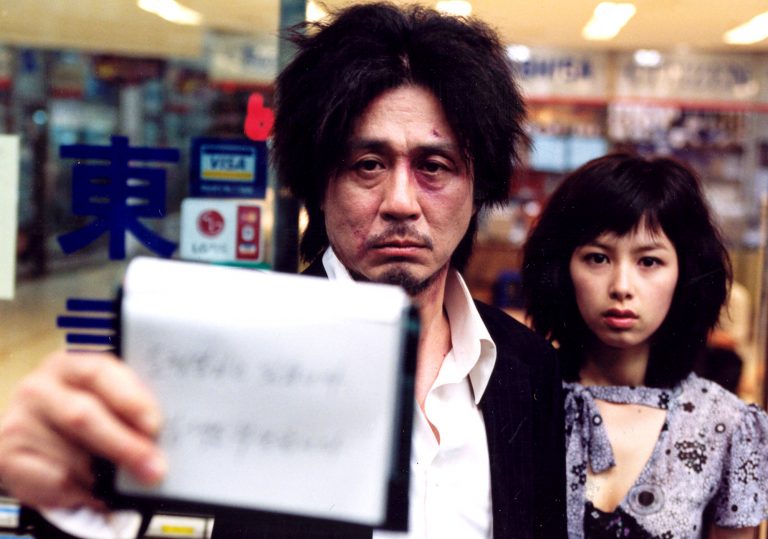
Directed by
Park Chan-wook
Choi Min-sik Kang Hye-jung Yoo Ji-tae
Anticipation.
Infamous for its tragic, perverse twist and general brutality.
And rightly so! A lurid, complex, introspective beast, enacting astonishing cruelty on its protagonist like a slow-acting poison.
In Retrospect.
Not quite Park Chan-wook’s greatest work, but more than earns its cult classic status.
Park Chan-wook’s revenge thriller mixes stylish thrills and perverse twists with a surprising amount of humour.
A film that for many has acted as a gateway to South Korean cinema, Oldboy , the second part of Park Chan-wook’s ‘Vengeance Trilogy’ is also his most infamous. Still revered today across all kinds of screen arts, its most famous sequence, a virtuoso single-take hallway fight, has inspired various imitators for well over a decade. But what makes Oldboy special is its consideration of the violence that it portrays – with each blow of the hammer, the film responds: “even though I am no better than a beast, don’t I have the right to live?”
Based on a manga of the same name, Oldboy is the story of Oh Dae-su (Choi Min-sik), the film’s protagonist and victim. He’s introduced as an ordinary white-collar businessman, missing his daughter’s birthday after a night of drinking lands him at the police station. Shortly after being bailed out, he disappears without a trace, imprisoned for 15 years and then suddenly released with no explanation as to why, left with five days to find the answer.
His captivity brings a desire for revenge which turns out to be equal to that of his captor, who is just as violent and spiteful, but infinitely more sadistic. No definitive judgement is cast on whether or not Dae-su is a good man, Chung Chung-hoon’s camerawork observing him with almost impartial remove. As his captor says: “I’m sort of a scholar, and what I study is you”.
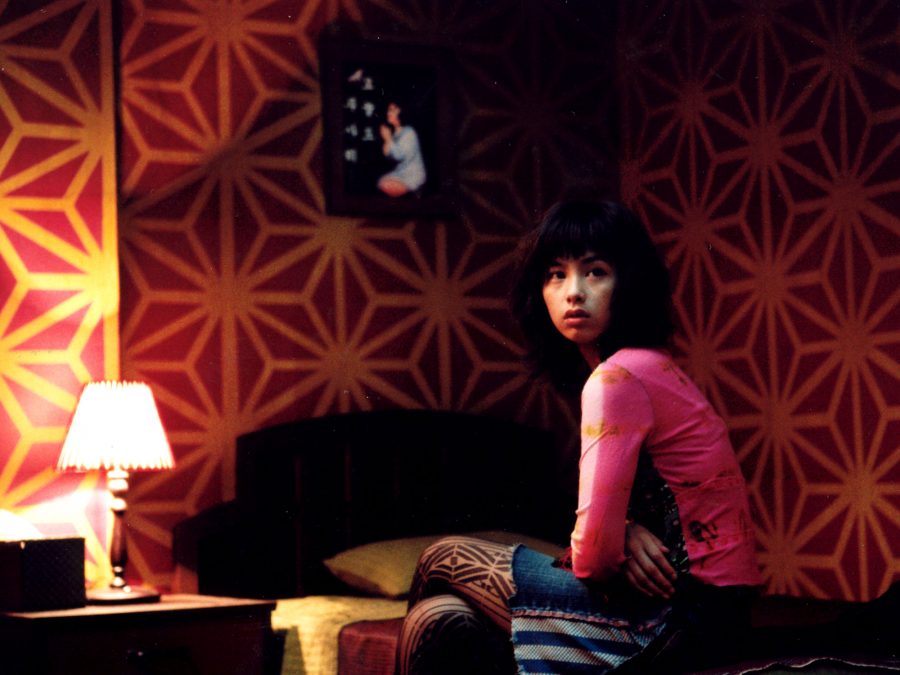
And so, we the audience join him in viewing his metamorphosis. This isn’t to say that Oldboy is a cold movie; if anything it’s highly emotive at every turn. A lot of care is put into creating Dae-su, as he changes into a beastly yet captivating agent of vengeance, then into someone who might actually have the hope of becoming a better human being.
The first act follows a fairly conventional revenge thriller template, with exhilarating fight scenes filmed with clarity and grit. But the violence is rarely satisfying. As the film moves into its final act, every bloody action is near unbearable – even though it’s mostly implied – as though it’s too great a horror to be seen. It’s also worth noting that it’s a far funnier film than its reputation would suggest, mixing tragedy and pitch-black humour from the jump.
The chief pleasure and horror of this film lies in Park’s slow twisting of the knife into Dae-su’s side, taking away any kind of temporary satisfaction with each new humiliation – the final turn being the most improbable and deliriously twisted. Fifteen years on, Oldboy has lost none of its capacity to shock and delight.
Published 29 Jul 2019
Tags: Choi Min-sik Park Chan-wook
Most Popular
Suggested for you.

The Handmaiden
By Abbey Bender
Park Chan-wook’s sumptuous erotic thriller is among his boldest works to date.
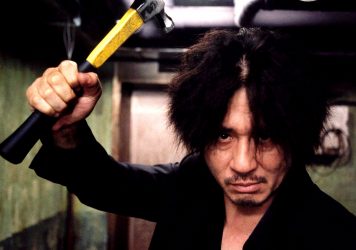
Six of the best Park Chan-wook scenes
By Kambole Campbell
From Oldboy to Stoker, here are some of the South Korean director’s most memorable moments.
articles If You Like...

By Adam Woodward
Operatic style can’t paste over the meagre, far-fetched substance in Oldboy director Park Chan-wook’s English-language debut.

- Become a Member
- Digital Editions
- Write for LWLies
- Access Information
- Privacy Policy
- The Scoring System
What are you looking for?

About Little White Lies
Little White Lies was established in 2005 as a bi-monthly print magazine committed to championing great movies and the talented people who make them. Combining cutting-edge design, illustration and journalism, we’ve been described as being “at the vanguard of the independent publishing movement.” Our reviews feature a unique tripartite ranking system that captures the different aspects of the movie-going experience. We believe in Truth & Movies.
- David Jenkins
- Hannah Strong
- Marina Ashioti
- Laurène Boglio
Oldboy Review
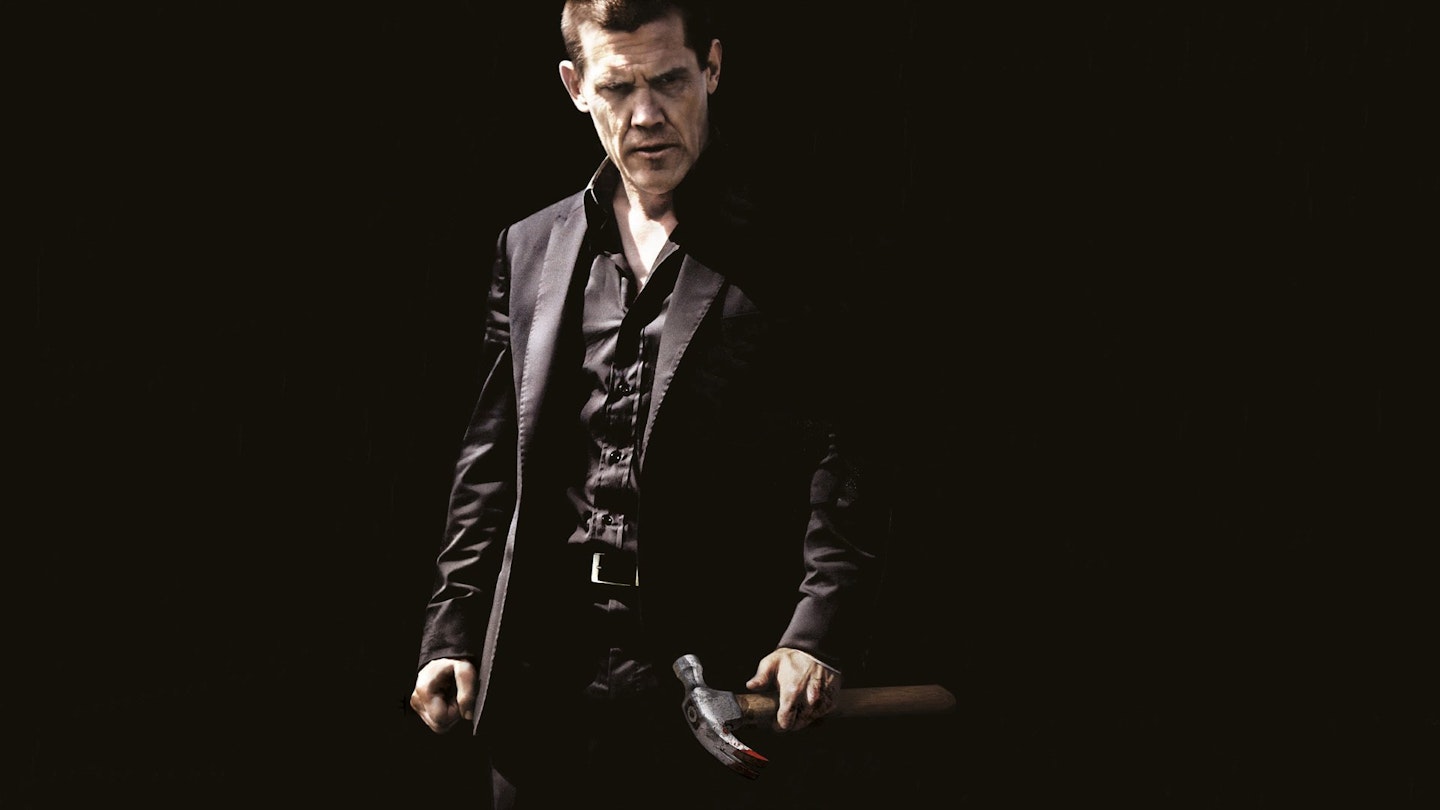
15 Oct 2004
120 minutes
No doubt about it, OldBoy is all about extremity. You want torture? Try getting your head around the idea of being in solitary for 15 years. Violence? Check out the one-take corridor brawl in which psychologically ravaged Dae-su takes on a score of goons... with a claw-hammer.
You want to know how far someone could go to wreak revenge? Well, we advise you to brave South Korean writer-director Park Chan-wook's helter-skelter descent into the dingiest pit of human behaviour, even if at times it is tough going and ludicriously unfeasible.
As Empire viewed a pre-BBFC-scrutinised cut of the movie, the infamous live-octopus-eating scene remained intact; it's doubtful this truly stomach-churning moment will make it into UK cinemas. But there's plenty else to shock even without it - and all done with such unabashed verve that you'll be as compelled as you are repulsed.
OldBoy recalls Fincher in its CG-assisted flourishes and doomy themes, and Tarantino with its sharp-suited, stylised bloodletting. But it's unlikely either of those guys would ever be allowed to push it as far as Park has with this. Like we said, the word is extreme...
Related Articles
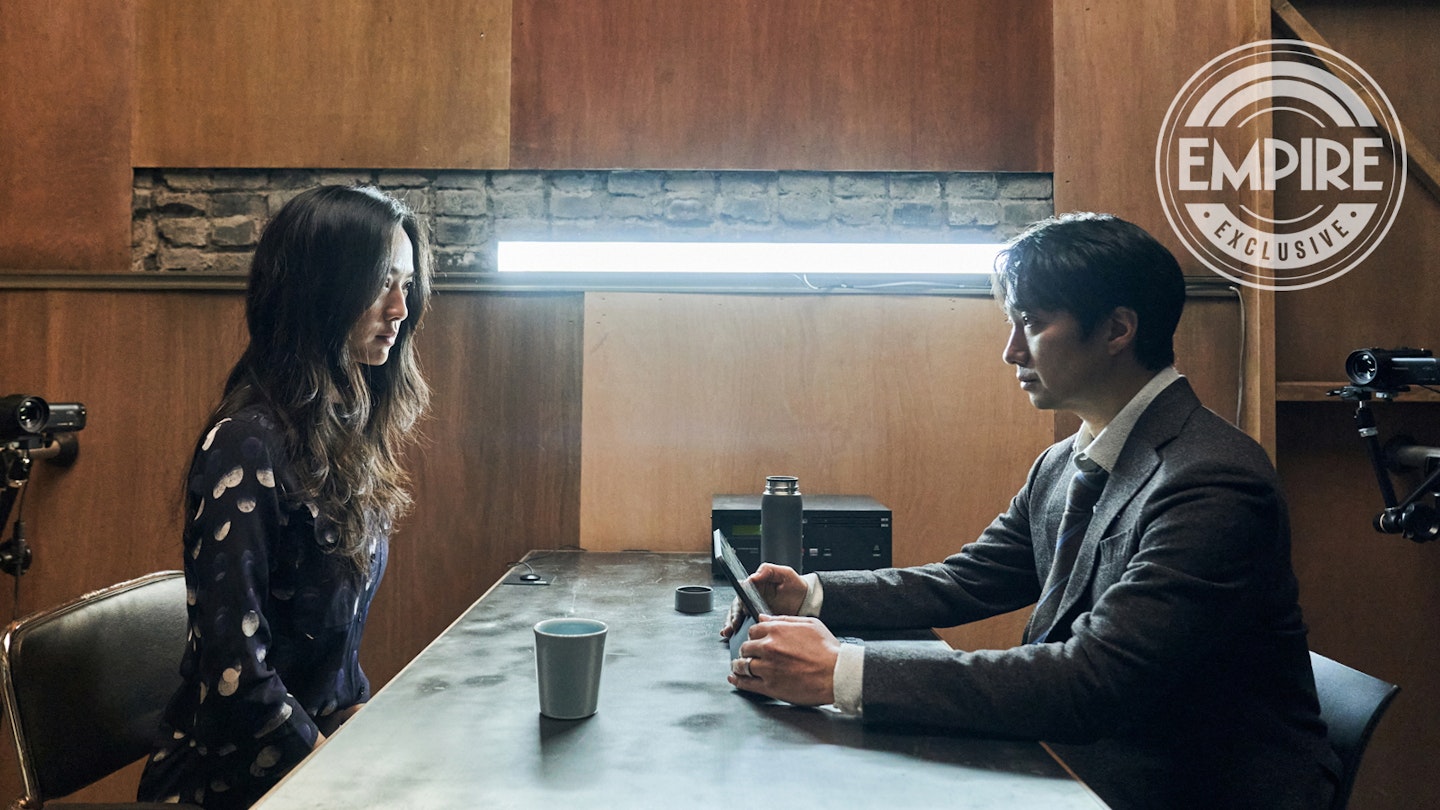
Movies | 29 09 2022
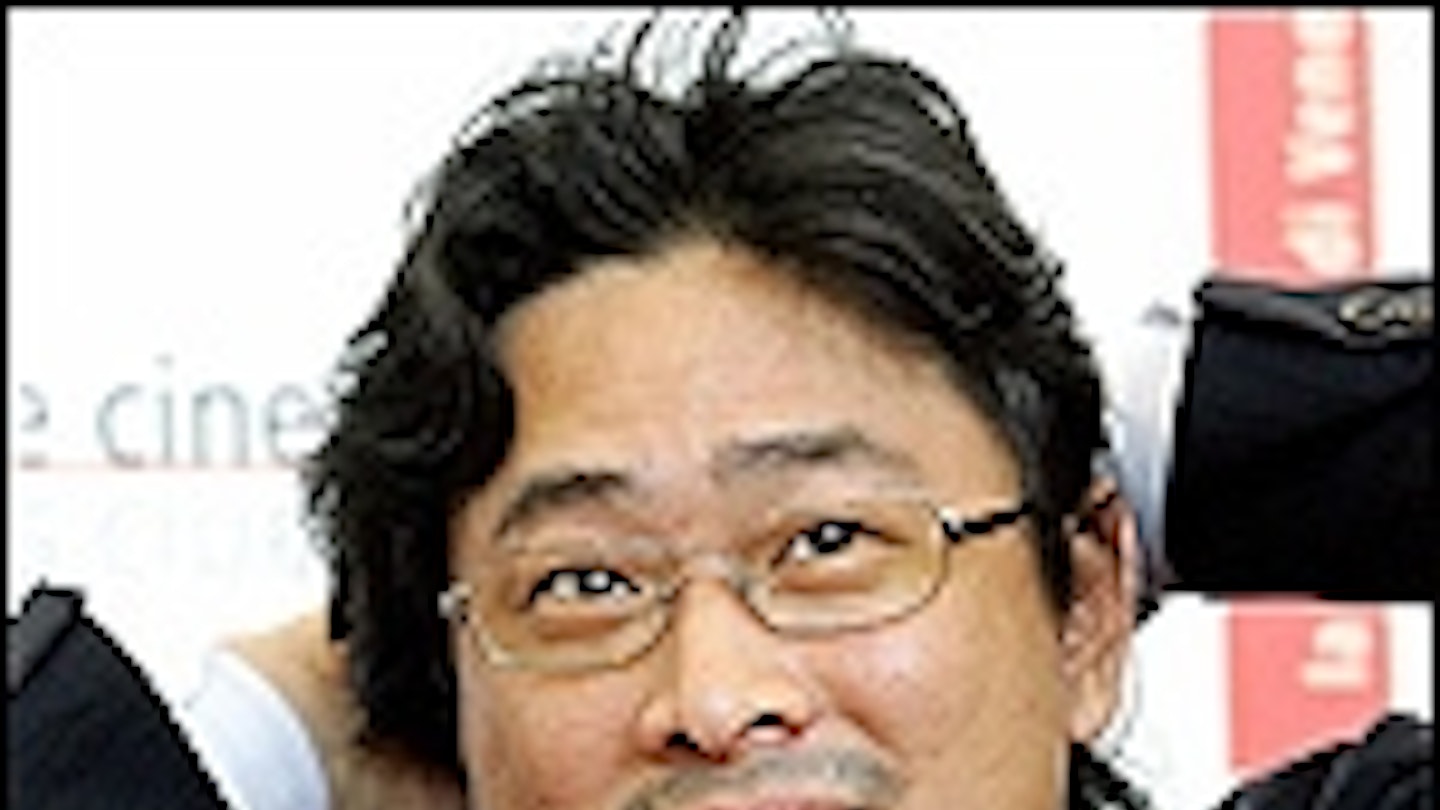
Movies | 14 11 2014

Movies | 17 09 2013

Movies | 09 07 2013

Movies | 16 04 2013

Movies | 21 11 2012
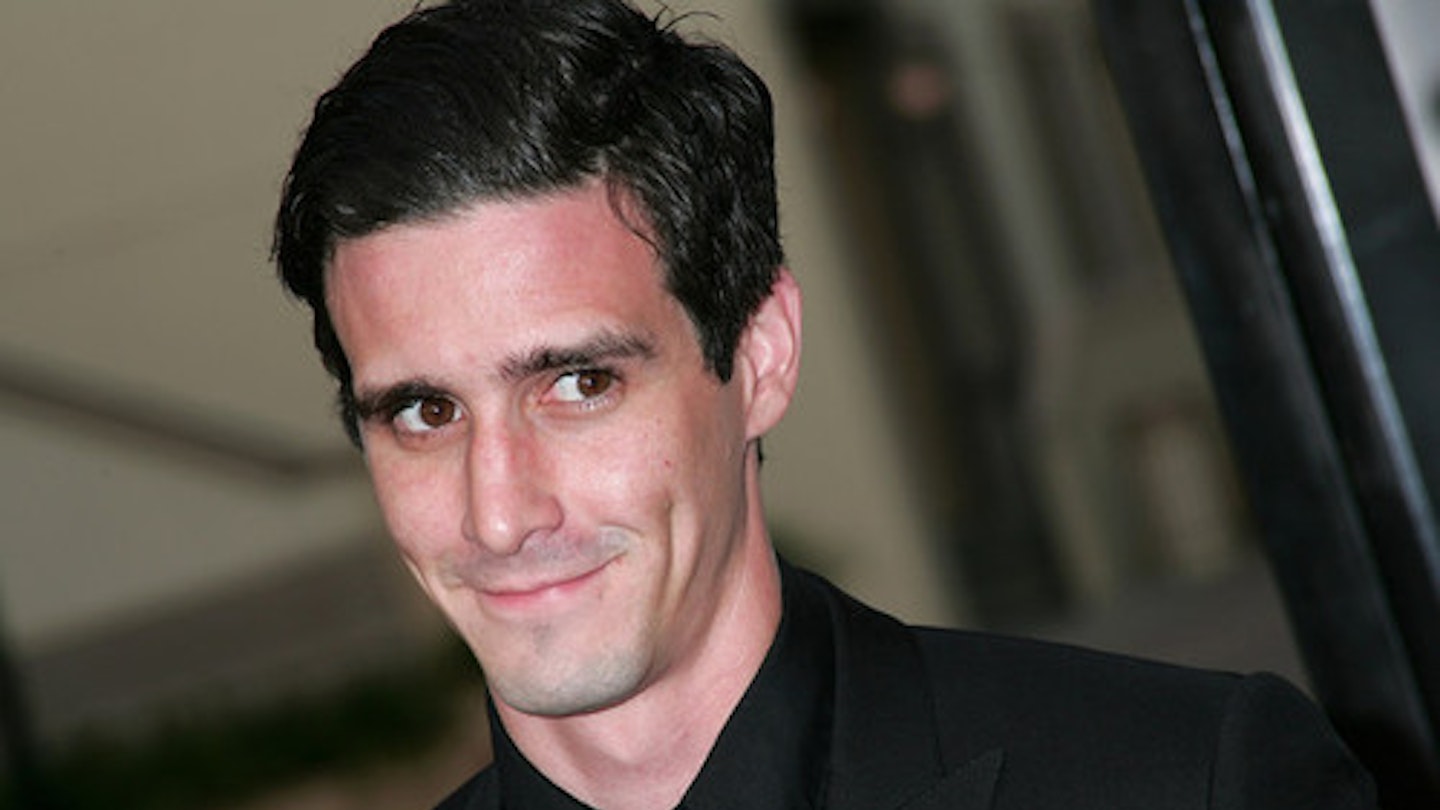
Movies | 16 10 2012
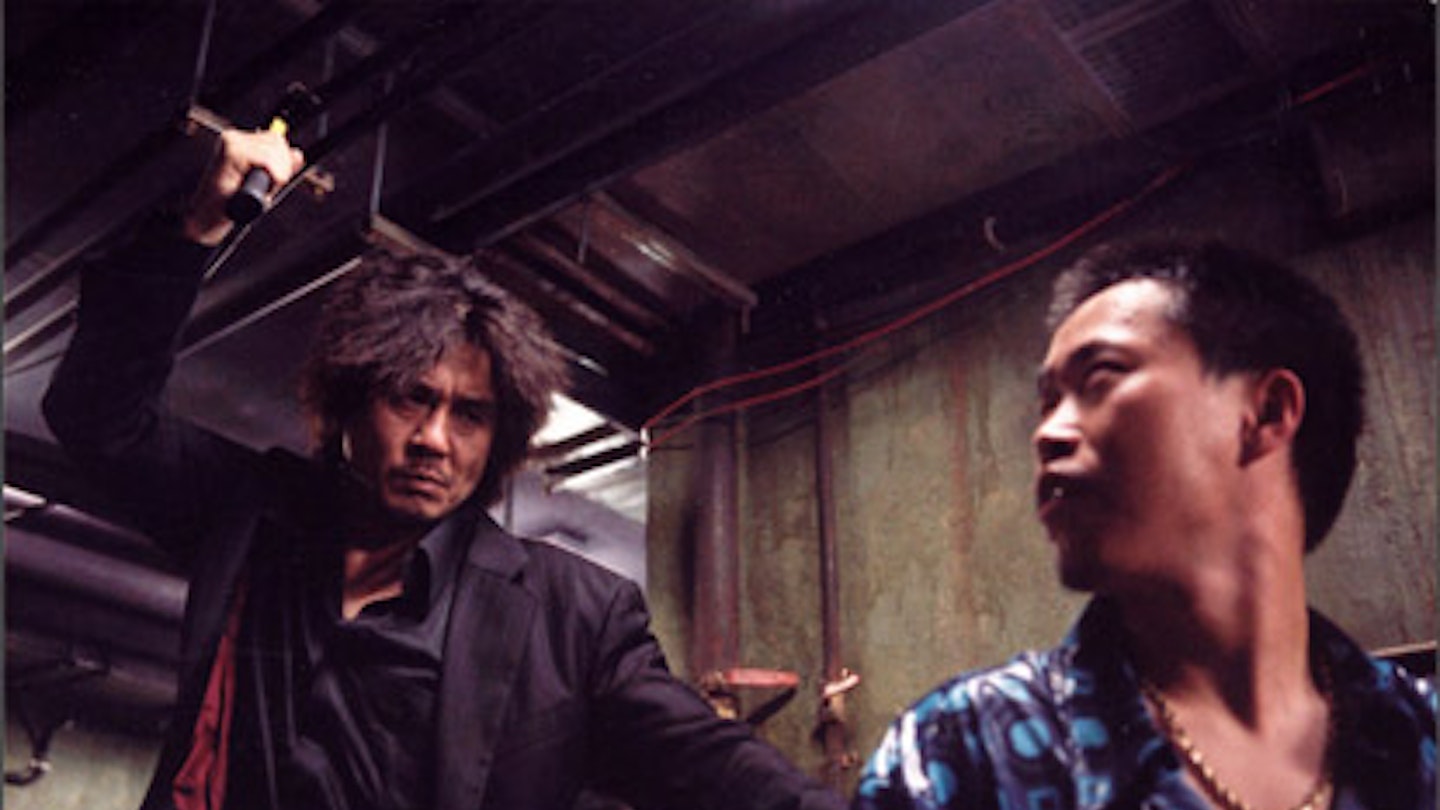
Movies | 28 09 2012

IMAGES
COMMENTS
Dec 11, 2023 Full Review Armond White National Review Oldboy is flashy, but there’s a moral and social disconnect between showing off Park’s undeniable chops and Choi Min-sik’s wild-haired ...
Mar 24, 2005 · It is also, really, the beginning of the movie, the point at which it stops being a mystery and becomes a tragedy in the classical sense. I will not reveal the several secrets that lie ahead for Oh, except to say that they come not as shabby plot devices, but as one turn after another of the screws of mental and physical anguish and poetic justice.
Rotten Tomatoes, home of the Tomatometer, is the most trusted measurement of quality for Movies & TV. The definitive site for Reviews, Trailers, Showtimes, and Tickets
Old Boy is by turns idiotic, horrendous and senselessly violent. It lacks the glee of the most basic revenge film. Even Kill Squad did it better. Old Boy simply has no point to speak of. My question is: How did the director and scriptwriter screw up a revenge thriller? Old Boy is very reminiscent of Takashi Miike's far superior Ichi the Killer.
Aug 21, 2023 · For young buffs like myself, Oldboy was best known as the movie where a man eats a live octopus on screen, or maybe the one where a man fights a hallway full of people armed only with a hammer ...
Mar 6, 2023 · Old Boy (2003) is a high-octane revenge drama blended in a neo-noir action thriller genre, by auteur Park Chan-wook from South Korea. The film is the second instalment of Park’s The Vengeance Trilogy, preceded by Sympathy for Mr. Vengeance (2002) and followed by Lady Vengeance (2005).
Mar 25, 2005 · Oh Dae-su (Choi Min-sik) is an ordinary Seoul businessman with a wife and little daughter who, after a drunken night on the town, is locked up in a strange, private "prison." No one will tell him why he's there or who his jailer is. The imprisonment last for 15 years until one day when Dae-su finds himself unexpectedly deposited on a grass-covered high-rise roof, determined to discover the ...
Nov 26, 2013 · Oldboy: Film Review. Spike Lee offers less ambiguity than Park Chan-wook's version of the famous manga, but doesn't skimp on viciousness and gore.
Jul 29, 2019 · Combining cutting-edge design, illustration and journalism, we’ve been described as being “at the vanguard of the independent publishing movement.” Our reviews feature a unique tripartite ranking system that captures the different aspects of the movie-going experience. We believe in Truth & Movies. Editorial. David Jenkins; Hannah Strong
Oct 14, 2004 · Oldboy Review One night, Dae-su (Choi) is locked up in a mysterious prison - with no idea why. After 15 torturous years, he's suddenly released and given a mobile phone, a designer suit and a ...